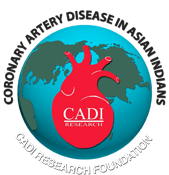Causes of Obesity
- The dramatic increase in obesity worldwide is not due to any genetic mutation, but due to an imbalance in energy intake and energy expenditure (physical activity).
- Since the 60s the average daily calorie intake has increased across the globe. The consumption of food high in fats and sweeteners is increasing throughout the developing world, while the share of cereals is declining; intake of fruits and vegetables remains inadequate.
- On the basis of increased daily servings of individual dietary components, the foods strongly associated with weight gain are potato chips, potatoes, sugar-sweetened beverages, unprocessed red meats, and processed meats whereas intake of vegetables, whole grains, fruits, nuts, and yogurt were inversely correlated. 1
- In 2006, 150,000 new food and beverage products were launched worldwide; that is 300 new products appeared in stores around the globe each day.
- Families in industrialized nations spend more of their money than ever before on meals purchased away from home. Commercially prepared food is higher in salt, fat and sugar. The portions in fast food restaurants across the globe are between 2 to 5 times larger than 2 decades ago.
- Researchers have found that high-intensity counseling for diet and exercise, combined with behavioral support, can produce sustained weight loss in obese adults, resulting in improved glucose metabolism, lipid levels, and blood pressure.
- The solution to obesity worldwide is through reducing the calorie intake through reduced portion size and consuming less energy dense food such as fresh fruits and vegetables as a larger portion at every meal.
Sources
1. Mozaffarian D, Hao T, Rimm EB, Willett WC, Hu FB. Changes in diet and lifestyle and long-term weight gain in women and men. N Engl J Med. Jun 23 2011;364(25):2392-2404.

